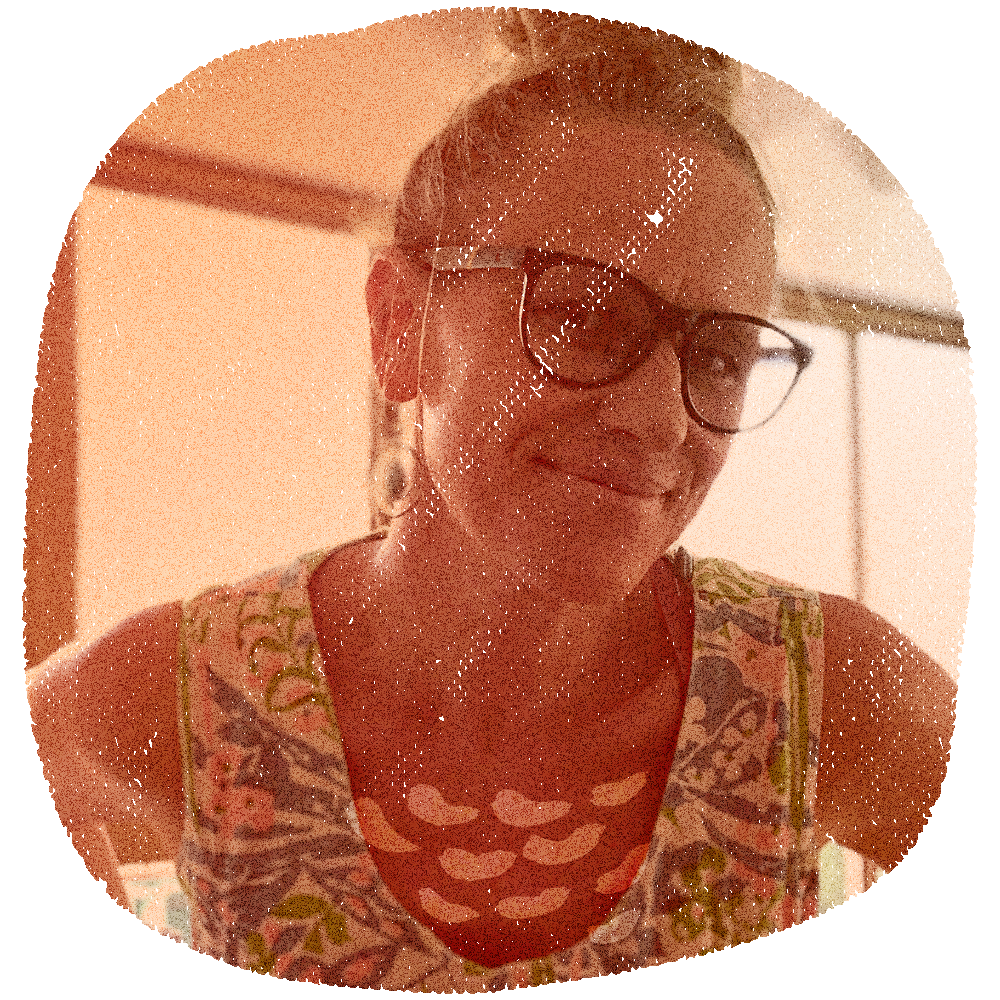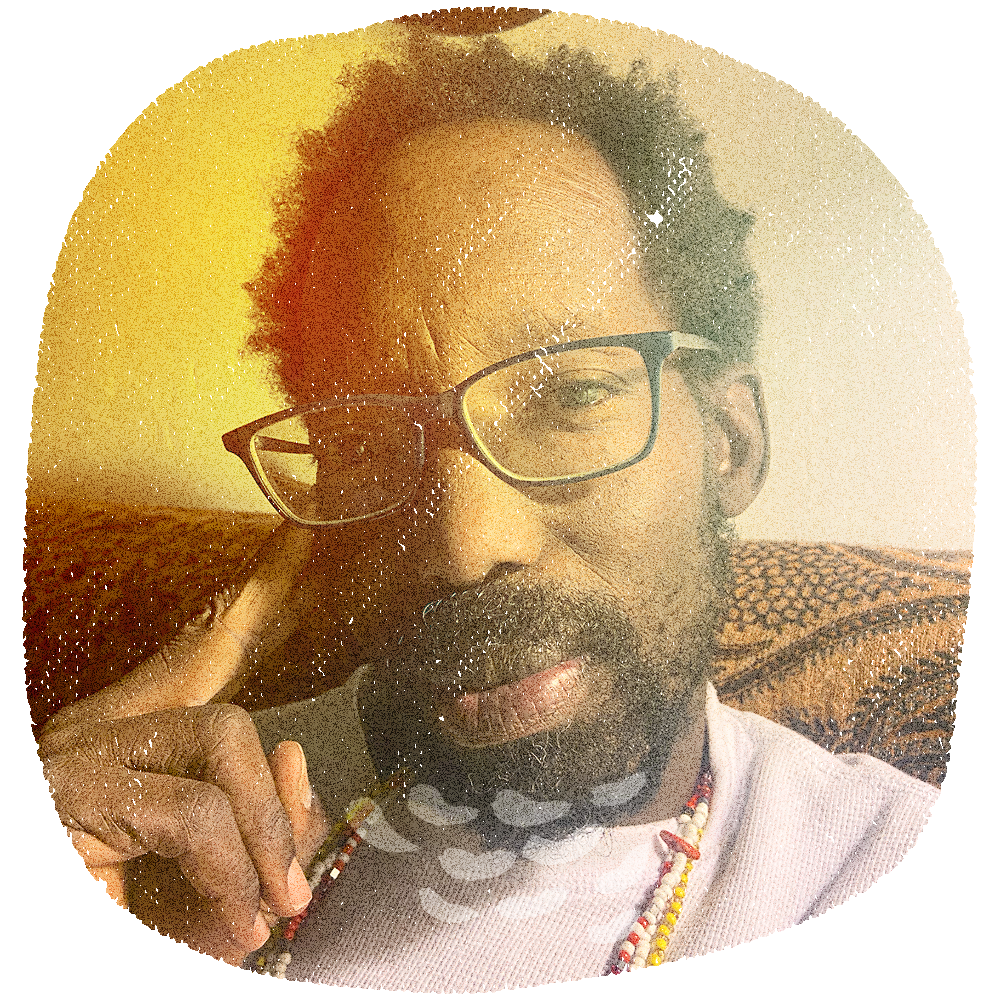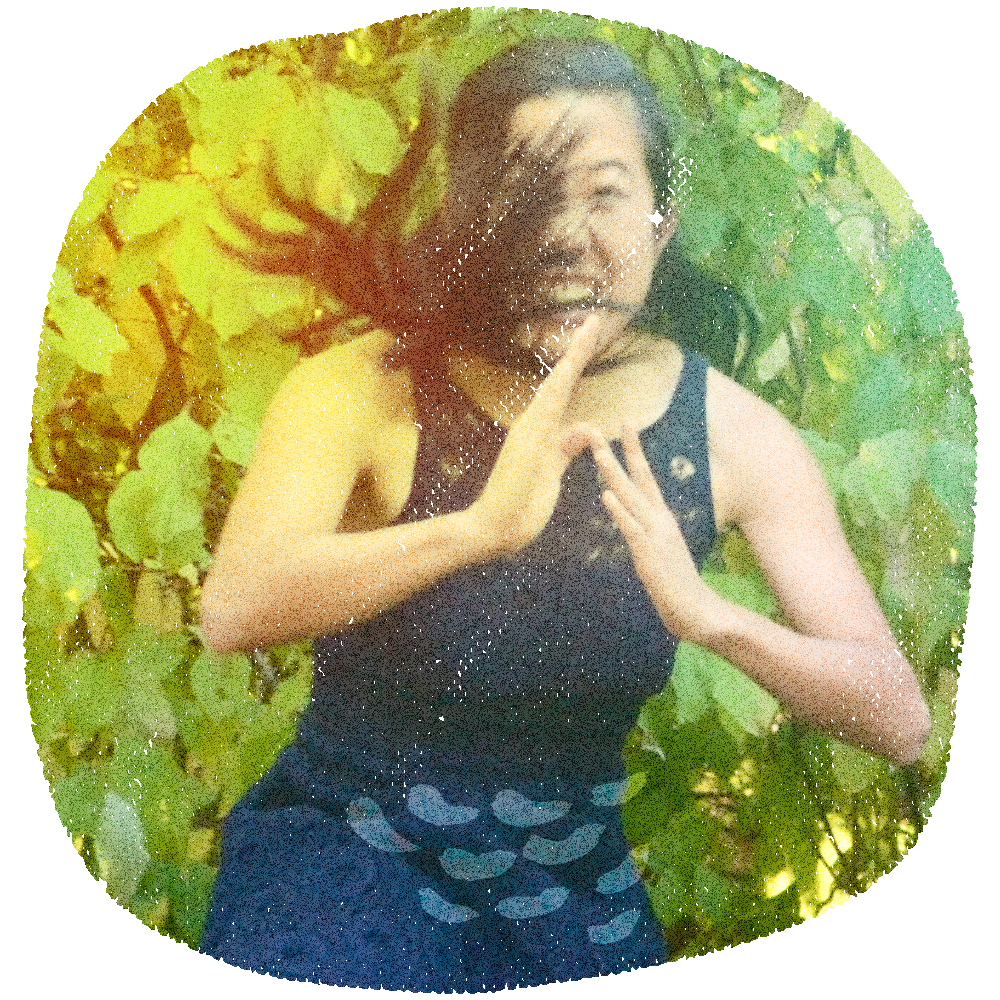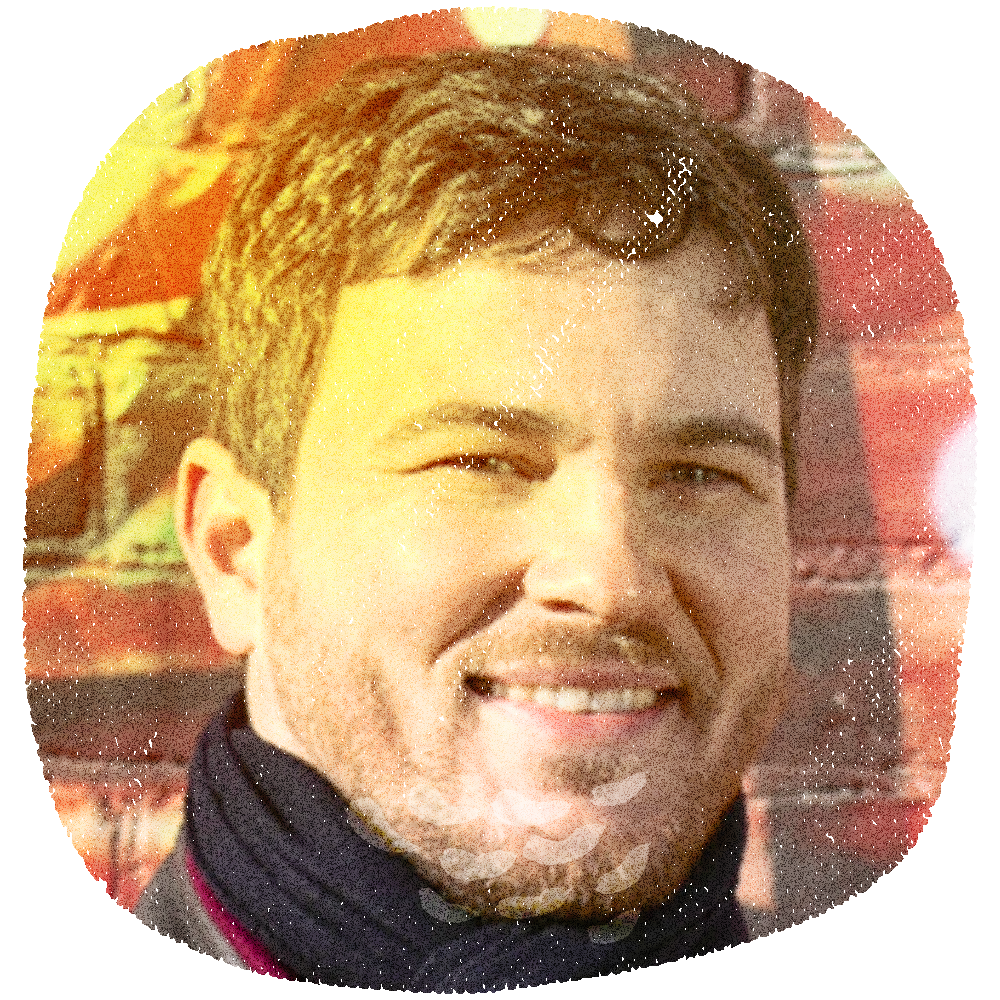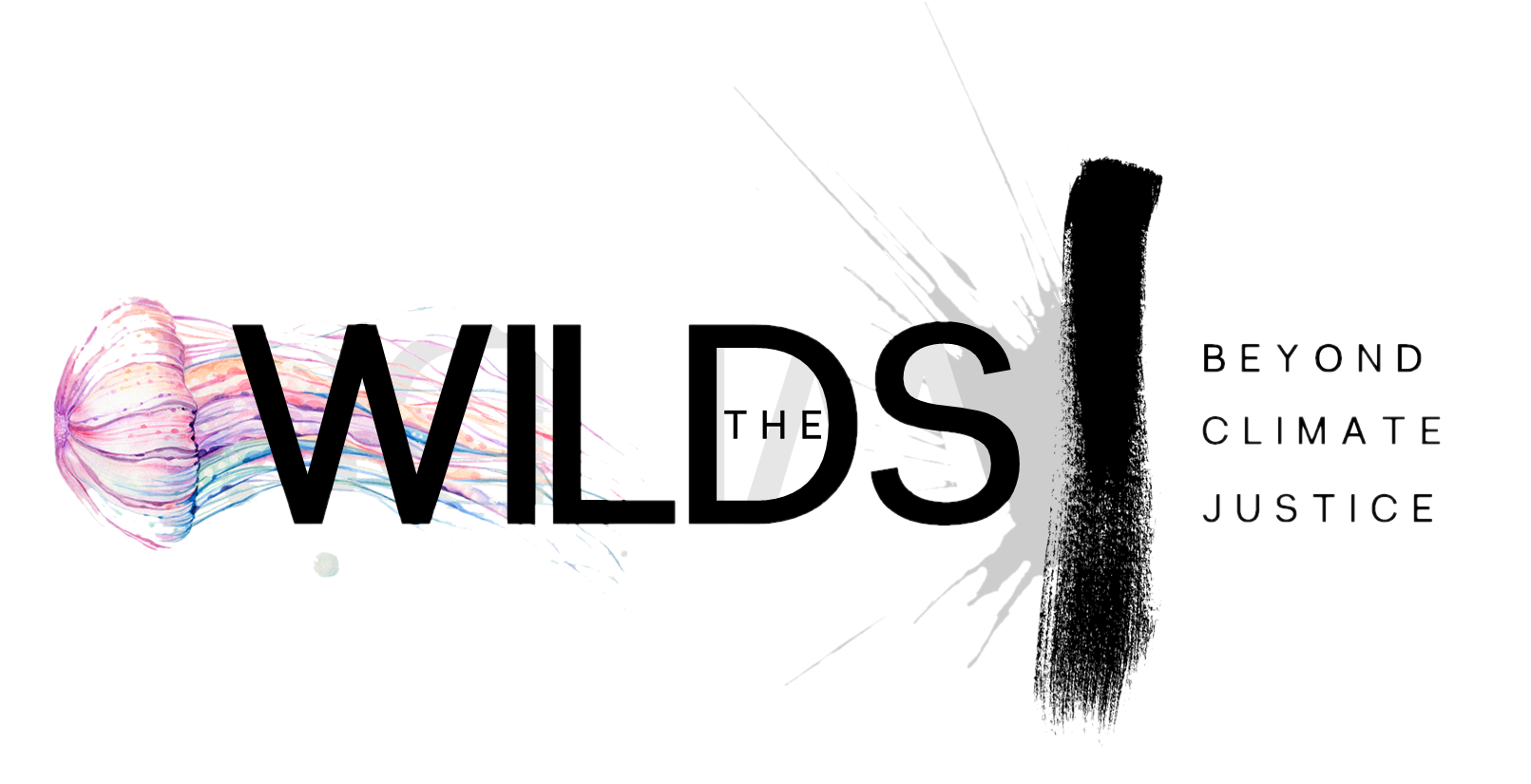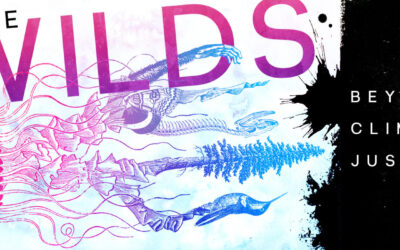
The Wilds Beyond Climate Justice:
Opening Remarks
Báyò Akómoláfé
From May 31st–June 4th 2020, The Emergence Network hosted a fugitive summit called The Wilds Beyond Climate Justice: A gathering at the end of hope. It was an experimental participatory gathering premised on the notion that strange gestures, strange organizations, and strange formulations are needed to meet the monstrous challenge posed by climate change. Our aim was to open up a space for different kinds of activities, actions, and conversations that lie beyond the dominant Western framework of climate activism and justice. What follows is a transcript of remarks made by Báyò Akómoláfé during the opening ceremony of the summit on Sunday, May 31st. Many thanks to Andrea Panaritis and her team for the transcription.
Welcome, welcome, welcome to everyone. Love you my dear sister, Karen. Aerin, Alex, Owolabi, thank you for putting this together.
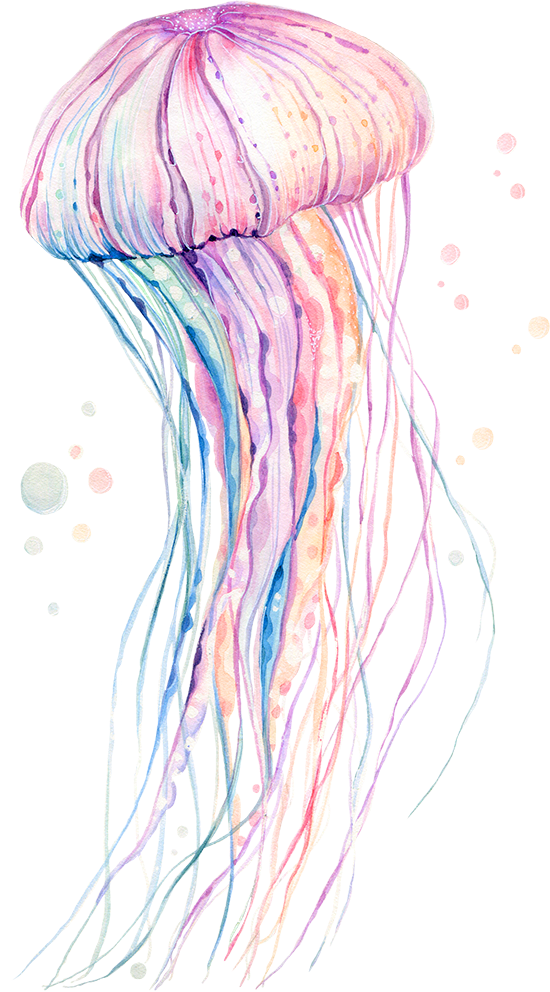
I feel I’ve already failed in saying welcome. The weight of this welcome is more than my lips can carry. Which is the first spectacular failure of our gathering, if you will. But it’s not the kind of failure that modernity speaks to us about. The drop off point, the inadequacy is a rhizomatic failure. A failure that breeds and burrows through the soil and libates the ground and does something with the Earth and with the planet.
So I welcome this failure. And I’d like you to say welcome to everyone else… or to your ancestors. You don’t have to unmute your mics – it might be too much – but just say welcome. Breathe it in. Say welcome to all the soft coincidences that made this possible. Say welcome to those people who are far and away, who are thinking about the next, who are thinking about activism, who are thinking about what to do about the fires that James Baldwin preached about and talked about that seemed to be inflaming the world at this point in time. Say welcome to the things that do not have names. Say welcome to the spirit animals, to the tables, to the furniture, to the technologies, to all the confusion, to all the technical grid, say welcome to all of them. Say welcome to the feelings of failure, to the feelings of inadequacy, to the feelings of being discarded. We are co-creating a theology of the discarded here. Say welcome to everything.
We will be together on this journey and go together into this soil, into this place of descent. It is customary where I come from to offer a story, a libation of words to call for the cola nut to be broken open, to bless the people who have come from so far away. And I will share that in a second, but first I want… to say thank you. The Yoruba people – the people in the part of West Africa now called Nigeria – they are a gratitude-giving people. So I want to give thanks to my mother, my aunties, my big sisters, Brenda Salgado and Iya’falola Omobola. A movement that doesn’t begin with mothers blessing it, isn’t quite serious about its work. So this is serious work we’re doing here. We’re turning to our grandmothers, we’re turning to the Earth, we’re turning to things that have no names, to the ancestors, and we’re doing the work of turning to the past instead of facing into the future like progress would have us do.
So I want to say thank you. I want to say thank you to The Emergence Network, the family that is putting this together. To my sisters Karen and Aerin, for believing in this dream, for making it happen, for birthing it, if you will. I want to say thank you to you, for being here. You might think, “I’m in my living room, there’s nothing special about this,” or “I’m in some place like I’ve always been; there’s nothing especially different about where I am,” but you’d be mistaken. You see, in a relational universe, things are not themselves. Nothing is itself by itself. Everything spills, everything exceeds the categories we consign them into. In a sense everything is beside itself, mad with wonder and magic. So in a sense, your living room has been conscripted and enlisted by a fugitive network of movements and gestures and constellations of practices that we rudely call postactivism. That is an invitation to us in this time to go down into the ground, to compost our boundaries and to become more than we think that we are. To become more than human.

Let me tell you a brief story, and this story is something about my own history. I grew up in Nigeria, but I traveled the world at a young age quite quickly. My father was a diplomat and he lived and worked in Kinshasa, Zaire. It’s now called The Democratic Republic of Congo, but then it was ruled by a dictator called Mobutu Sese Seko, and I did most of my schooling there.
One of those heady days, there was news that the soldiers of that country were disgruntled and angry because Mobutu had not paid them their salaries. So the soldiers took it upon themselves to hunt down the foreigners who were the causes of their misery. That meant us; that meant my family. I remember the night they came into our home. They broke into our home. They bastardized the people who were living with us, they took property, they held a gun to my head. It was reminiscent of the fires we are having right now. We’ve been through it before. They threw us out with only the clothes on our backs.
Miraculously we lived, my sisters, my mother, my father: we lived. No one died. In the morning, the air was rent with cries of death and pain. It was like the sky was painted with blood. Siren cries in the sky, warnings to avoid the highway. We had no shoes, we had no clothes. We barely had memories of the trauma we had just endured, but shortly we decided that there was something still worth living for.
So we decided to make our way to the Nigerian embassy, which was miles away. How did we do it? We went through cracks, we went through gutters, we stole through neighborhoods, we slept in the bush, we begged for bread on the road as we stole through the hinterlands or the forgotten places of the city to make our way to safety. And we got there safely and we were received and I’m still here. My father didn’t quite leave the country. He died there. But I bring his memory and I bring the memory of that event to this opening because I feel now in times of fire and pain and loss and confusion, we’ve been here before.
The world has ended many times. Many times. This is not the first time. What do you do when there’s no hope? What do you do when the highway’s famished? When it eats people? When soldiers are walking on the streets beating people up, what do you do? Where do you go when going forward is no longer possible? I think you steal through cracks. I think you do what fugitives do. I think you do what the slaves on slave ships did when they were dominated by colonial powers. You learn to fall down and sit still and await the crossroads. You learn to listen. You learn to compost yourself. You learn to steal away in the dead of night and you learn to become different so that justice may not find you anymore.
We’re in a painful time when the highway isn’t working for us. It’s not leading to anywhere interesting. We don’t know exactly what to do. Climate justice seems to be put in the family way, a tender way of saying we don’t exactly know how to go forward. Racial justice is already implied and complicit in the notions of climate justice that we talk about. Our discursive traditions just lead us to repeating the same things over and over again. This reminds me of the Biosphere II in the 1990s, which was a project of climate justice. It was the most embodied notion of climate justice ever, somewhere in Arizona. But it also ended because it was a project of human centrality. It was a way of asserting our control on the planet. It was a way of saying, “the world is one, is stable, is one entity” and when we start to proliferate little heavens, then it’s just a way of committing ourselves to our centrality.

I think the invitation of our time is for us to fall apart and die well. It’s for us to find ways of becoming other than what we are. And we don’t know how to do that unilaterally. Hence, our fugitivity, our call for fugitivity. Our call to steal away, away from the highway, away from the promises of reaching justice sooner or later, away from the politeness or civility of doing what good citizens will do and into places of darkness, amniotic darkness that wants to do something with us.
So I welcome you again and say welcome. And I hope this welcome that escapes my lips is a fugitive welcome. I hope I never get to own it. I hope that The Emergence Network never gets to own the welcome that we are ushering you into. I hope that it becomes yours in your community. I hope you leave this venue with the ability and capacity to see things anew, to see things differently. I hope you’re broken open. In fact, if you’re here and you’re whole, maybe this is not the place for you. This is an invitation to those who are not quite whole, who are ready to be broken apart again and again. The seed is cast in the ground does not complain about being torn apart. It does not lay claim to its integrity. It falls apart and allows itself to be worked upon by others.
So let me end my welcome with words of celebration and gratitude and caution. This place is a place of not joyful kumbayas or mindless celebrations or ready-made answers. This place is a place of questions, questions that beget questions. Over here, I think you will enjoy and be well-replenished and nourished by this journey if you are open to questions, if you are open to confusion. Confusion not as the thing that gets in our way to more clarity but confusion as a resource, as a gift of the trickster. The dream for this whole thing came from tricksters. It’s a more-than-human accomplishment here. It’s not entirely of our doing.
Even contradiction is something I would like you to attend to. Don’t be so given to the truth of things as you are given to the inclination, the playful inclinations of things. Truth is about rectitude and about justice, and there are many ways you can use truth that are wholesome today. But I feel that the trickster’s call is for us to lean to the sides, to touch our long bodies, to touch our transgressions and not to come in a spirit of “forgive me for my transgressions”, but to share the gift of our porosity with others so that we might become fugitives in the truest sense of the word. And then we can leave the plantation that proliferates suffering and pain and dying and death of black bodies and people of color and displacement and dispossession.
And finally, it is a place of failure. You’ve heard it many times. I’ve been saying it, Karen has been saying it. The entire team has been saying it. You might say, “No, it’s not a place of failure; it’s a place of lessons and we learn from our failure.” No, fugitivity is about the grandness and majesty of failure. It’s about how everything is emergent because we fail with each other. I remember the words of a great man saying, “Do it over and over again, learn to fail well.” I remember the words of my dear sister here, Aerin Dunford: “Let’s do something with a longing to fail.” That was many years ago. We’re finally here. This place is amniotic. We want to be reshaped and remade. If your righteousness gets in the way, then we might not be able to make it in this place together. But if you’re willing to be open, open to the activities of spirits and questions, of answers to things that have no names (I ache to name them and sometimes I shudder and hesitate when I put this on spirits or ancestors)… I think you’ll find there are things present among us that resist intelligibility. So I would like you to be open to that, to be open to the outrageous, the preposterous, as we move into this space together, into this rabbit hole, into this place of descent, into this place of composting.

I want to read some words to you to close my welcome, which is now your welcome hopefully. This is from a literary elder who reminds us that this time is about incapacitation. That maybe the work of today is about unlearning mastery. I call it fugitive incapacitation. Where we refuse to go on the highway and we steal through the bushes.
Where, in recognizing that justice is not quite working for us, we co-experiment with other ways of being in the world. We co-experiment with grieving and tears, we co-experiment with feelings that we’ve been told to pathologize. We co-experiment with eating differently. These words are by Jack Halberstam, he wrote them as a forward to a book that I like so much called the Undercommons. I hope that they are like a banner above this entrance that I am libating with my words:
“We cannot be satisfied with the recognition and acknowledgement generated by the very system that denies a) that anything was ever broken and b) that we deserved to be the broken part; so we refuse to ask for recognition, for justice, and instead we want to take apart and dismantle and tear down that structure that right now limits our ability to find each other, to see beyond it and access the places that we know lie outside its walls. We cannot say what new structures will replace the ones we live with yet, because once we have torn shit down, we will inevitably see more and see differently and feel a new sense of wanting and being and becoming. What we want after ‘the break’ will be different from what we think we want before the break, and both are necessarily different from the desire that issues from being in the break.”
So I invite you to this place of breaking open, a seed falling apart, the composting heap. The sweltering heat of fugitivity. Bless you and bless all those that have brought you here.
Wilds Beyond Climate Justice Project Description
The Wilds Beyond Climate Justice [ten artifacts] The Wilds Beyond Climate Justice: A gathering at the end of hope was an experimental online event to engage in different activities, actions, and conversations that evade Western logic as it defines rational climate...
Wilds Beyond Climate Justice Joe Reilly Mother Earth’s Songs Collective Song Creation
Wilds Beyond Climate Justice [ten artifacts] A gathering at the end of hope was an experimental online event to engage in different activities, actions, and conversations that evade Western logic as it defines rational climate solutions.WBCJ Joe Reilly Mother Earth's...
The Wilds Beyond Climate Justice: Closing Ceremony Harvest
The Wilds Beyond Climate Justice [ten artifacts] The Wilds Beyond Climate Justice: A gathering at the end of hope was an experimental online event to engage in different activities, actions, and conversations that evade Western logic as it defines rational climate...
Reflections on The Wilds Beyond Climate Justice from the Organizers
The Wilds Beyond Climate Justice [ten artifacts] The Wilds Beyond Climate Justice: A gathering at the end of hope was an experimental online event to engage in different activities, actions, and conversations that evade Western logic as it defines rational climate...




